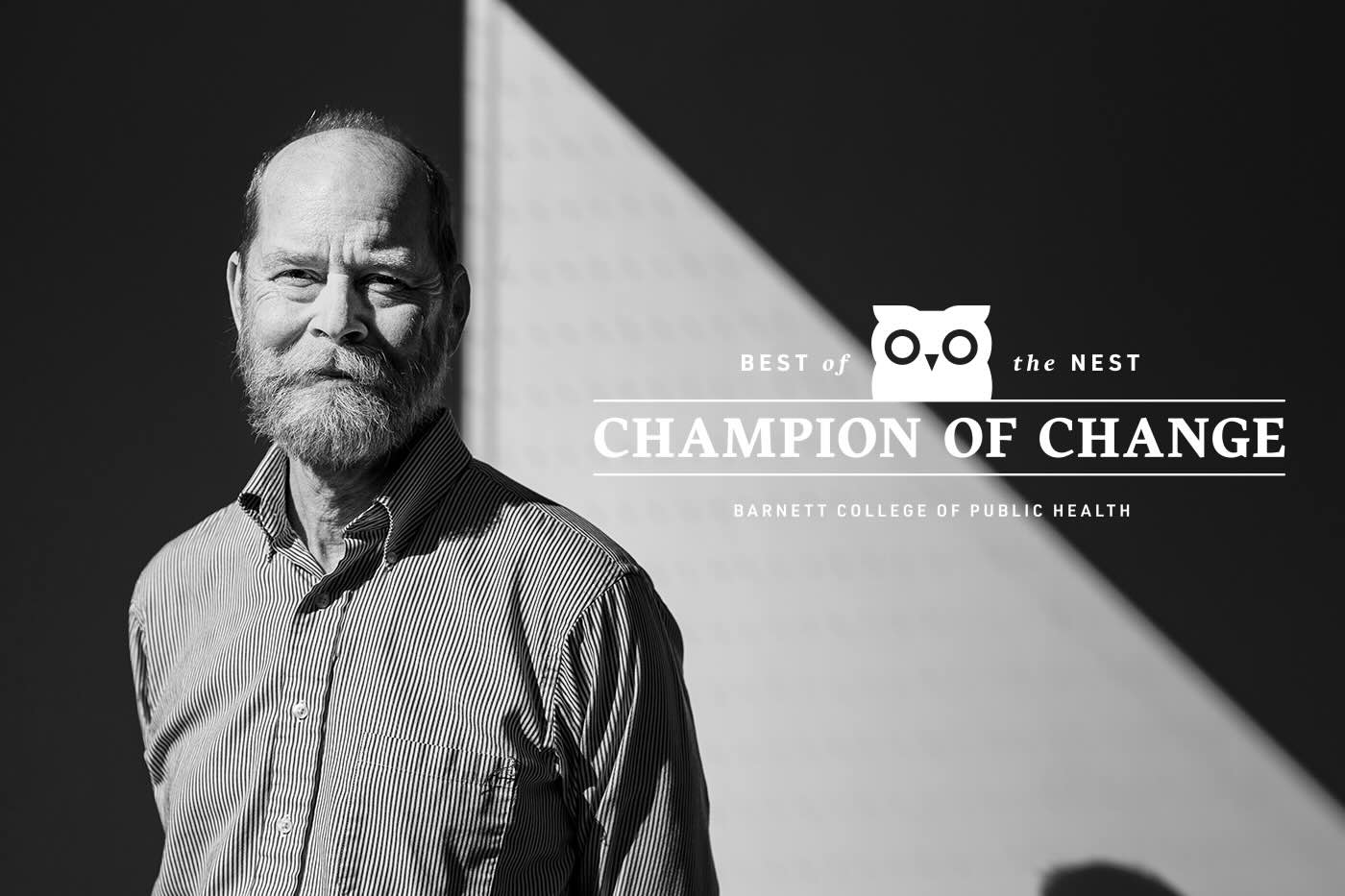At the Temple University Collaborative on Community Inclusion at the Barnett College of Public Health, Dr. Bryan McCormick is leading research that redefines what it means to thrive with serious mental illness. His work focuses not only on treatment, but on helping people feel connected, valued, and—perhaps most importantly—needed.
“When we don’t have anyone who relies on us, it undermines our well-being,” McCormick explains. “We all need to matter.”
McCormick’s career began in recreation therapy, working in an inpatient psychiatric setting with adults and adolescents facing serious mental illness and substance use challenges. His inspiration came from personal experience. “I saw how recreation could help people realize their capacity and feel good about themselves,” he says.
As a kid, he spent hours rock climbing and exploring the outdoors. The success of reaching the top of a climb taught him about confidence and perseverance—principles he would later bring into his professional work. After earning his master’s degree, McCormick conducted a thesis on Alcoholics Anonymous, spending nine months attending meetings and interviewing members. “I wanted to understand how people made sense of the world socially, especially after hardship,” he says. “That experience really shaped my career.”
Much of his work today focuses on the power of connection—how shared activities and recreation can help people overcome isolation and loneliness. “Almost nobody says they got through a hard time by working more,” he says with a laugh. “We cope through shared experiences—through relationships that grow from doing things together.”
That belief is at the heart of the Temple University Collaborative on Community Inclusion, directed by Dr. Mark Salzer where McCormick serves as a Principal Investigator. The Collaborative supports adults with serious mental illness find meaningful roles in their communities through education, work, faith, recreation, and civic engagement. What makes Temple’s approach unique, McCormick says, is its focus on participation rather than readiness. “People don’t have to be ‘ready’ to belong,” he explains. “They belong now.”
One of McCormick’s most impactful projects is the federally funded Need to Be Needed Project, now in its fifth year. The research addresses chronic loneliness by helping participants find ways to contribute to their communities—whether that means volunteering at a park, helping at a library, or simply showing up for someone else. “When you help others, it changes how you see yourself,” McCormick says. “We’ve found that when people move from being receivers of help to givers, their confidence and sense of belonging grow.”
The project integrates directly into community mental health services, many of which are funded through Medicaid, so findings can be applied in real-world care. Certified peer specialists often deliver the interventions, helping participants strengthen their social connections and rediscover purpose.
McCormick’s work has also taken him across the globe—to Serbia, Bosnia, Kosovo, and the Philippines—where he has studied recovery and inclusion in post-conflict and developing environments. In Kosovo, he worked with the Vietnam Veterans of America Foundation to train mental health staff and NGOs in using activity therapeutically, even under challenging conditions like limited electricity and freezing temperatures. “It was remarkable,” he recalls. “People came together, eager to learn and collaborate, even when the odds were against them.”
Those experiences reinforced a crucial lesson: rebuilding lives after trauma requires more than restoring physical infrastructure—it requires rebuilding social trust.
Whether in the Balkans or North Philadelphia, McCormick has found that mental health stigma is universal. In some cultures, it takes extreme forms; in others, it shows up as subtle discrimination or misunderstanding. “Stigma exists in every culture,” he says. “We may see it differently, but it always limits connection.”
During his Fulbright Specialist Project in September 2025, McCormick partnered with the University of Mindanao in Davao City, Philippines, where he worked with local faculty to design a seminar series on global mental health and stigma. The project highlighted how 90 percent of global mental health research has been done on 10 percent of the world’s population, primarily in Western nations. His goal was to help elevate perspectives from underrepresented regions, including the Philippines, where social media and modernization are beginning to reshape traditional, collectivist values.
McCormick’s research also seeks to influence policy—particularly how Medicaid defines “treatment.” Recreation therapy and community participation are often excluded from funding because they aren’t seen as medically necessary. “That’s a major barrier,” he says. “Community participation should be recognized as part of rehabilitation. Inclusion itself is a form of healing.”
As the Collaborative continues to expand its reach, McCormick is most excited about how the concept of mattering—feeling seen, valued, and relied upon—is resonating across disciplines. This fall, his team will present their work at the Foundation for Social Connection Conference in Atlanta, where their “Seeds of Connection” presentation was selected as a featured session.
“When we talk about mattering, people pay attention,” he says. “It’s intuitive. Everyone wants to feel that they make a difference.”
For McCormick, that simple idea sits at the heart of all his work. “Helping people feel that they matter can transform how they see themselves, their neighborhoods, and their families,” he says. “That’s the heart of community inclusion.”

